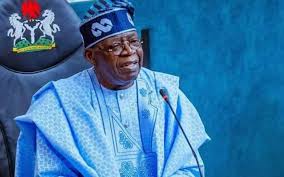In a strategic shift aimed at revitalizing Nigeria’s downstream petroleum sector, President Bola Tinubu has authorized a 15% ad-valorem import levy on petrol and diesel entering the country. The policy, unveiled through an official directive dated October 21, 2025, is expected to bolster domestic refining operations and reduce market instability.
The Federal Inland Revenue Service (FIRS) and the Nigerian Midstream and Downstream Petroleum Regulatory Authority (NMDPRA) have been tasked with immediate enforcement of the new tariff, which forms part of a broader framework designed to align fuel pricing with market realities.
The presidential directive, signed by Damilotun Aderemi, Tinubu’s private secretary, ratifies a proposal submitted by FIRS Chairman Zacch Adedeji. The plan calls for a 15% duty based on the cost, insurance, and freight (CIF) value of imported fuel products, with the goal of incentivizing local production and ensuring fair competition.
Adedeji emphasized that the measure supports the administration’s “Renewed Hope Agenda,” which prioritizes energy independence and economic resilience. He noted that the initiative seeks to normalize crude transactions in naira, enhance refining capacity, and stabilize fuel availability nationwide.
“The pricing gap between imported and locally refined fuel has created volatility in the market,” Adedeji explained. “Although Nigeria has made progress in refining diesel and ramping up petrol production, price distortions persist due to foreign exchange fluctuations and uneven cost recovery.”
He warned that without intervention, domestic refiners could be squeezed out by cheaper imports, undermining recent investments in local infrastructure. The new tariff, he said, is designed to level the playing field and protect both consumers and producers from exploitative pricing practices.
According to projections in the approval memo, the import duty could raise the landing cost of petrol by approximately ₦99.72 per litre. However, even with this adjustment, pump prices in Lagos are expected to remain around ₦964.72 per litre ($0.62), still well below regional benchmarks in countries like Senegal ($1.76), Côte d’Ivoire ($1.52), and Ghana ($1.37).
The move is part of Nigeria’s ongoing push to reduce dependence on foreign fuel supplies. The Dangote Refinery in Lagos, with a capacity of 650,000 barrels per day, has already commenced production of diesel and aviation fuel. Meanwhile, modular refineries in Edo, Rivers, and Imo states are contributing to small-scale petrol output.
Despite these advances, imported petrol continues to account for roughly two-thirds of Nigeria’s consumption, underscoring the urgency of policies that support local refining and long-term energy security.

